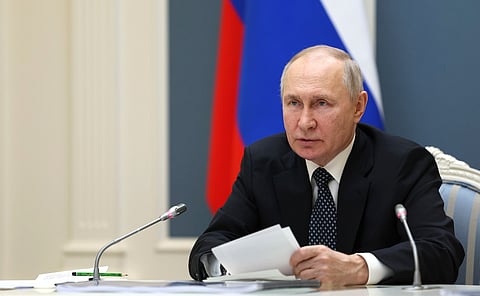

Russian President Vladimir Putin addressed questions on Friday regarding the US-proposed 28-point peace plan for Ukraine, confirming during a meeting of Russia’s Security Council that Moscow had formally received the proposal endorsed by President Donald Trump. Putin described the plan with caution but also with measured openness, noting that it “could also form the basis of a final peace settlement” if further discussions prove productive.
Putin also referenced earlier conversations with Trump, stating, “President Trump’s peace plan for Ukrainian crisis resolution was discussed even before the meeting in Alaska. During the discussions, the American side asked us to make certain compromises – to show what they called ‘flexibility.’ We nevertheless agreed with these proposals and were prepared to demonstrate the requested flexibility.” He added that Russia remains ready for “substantive discussion of all the details of the proposed peace plan for Ukraine.”
Still, Putin hinted that the version received from Washington does not sufficiently address what Moscow calls the “root causes” of the conflict. He also pointed to Russia’s current battlefield momentum as evidence that its objectives are being advanced through military means, a sign that the Kremlin believes it can secure its aims even without a diplomatic breakthrough.
Putin’s approach—signaling openness while committing to nothing—mirrors how he has navigated Trump’s unpredictable diplomatic style throughout the year, including episodes in which Trump’s personal envoy, Steve Witkoff, arrived in Moscow demanding immediate ceasefires.
Trump’s abrupt shift in tone has surprised many observers. After months insisting Ukraine could still win the war, he now reportedly acknowledges Ukraine is losing and has demanded that President Volodymyr Zelensky accept the peace arrangement by November 27 or risk losing US arms shipments and intelligence support entirely.
Given Russia’s firm conditions outlined since last June, combined with Zelensky’s weakening political position and the risks he may face if he accepts a deal viewed domestically as capitulation, few analysts expect a finalized agreement by next week. However, many believe Trump’s pivot is driven by his realization of Ukraine’s deteriorating military position as well as growing political pressures at home—pressures that may be motivating a rapid and potentially desperate bid to claim a diplomatic “win” by ending the war.